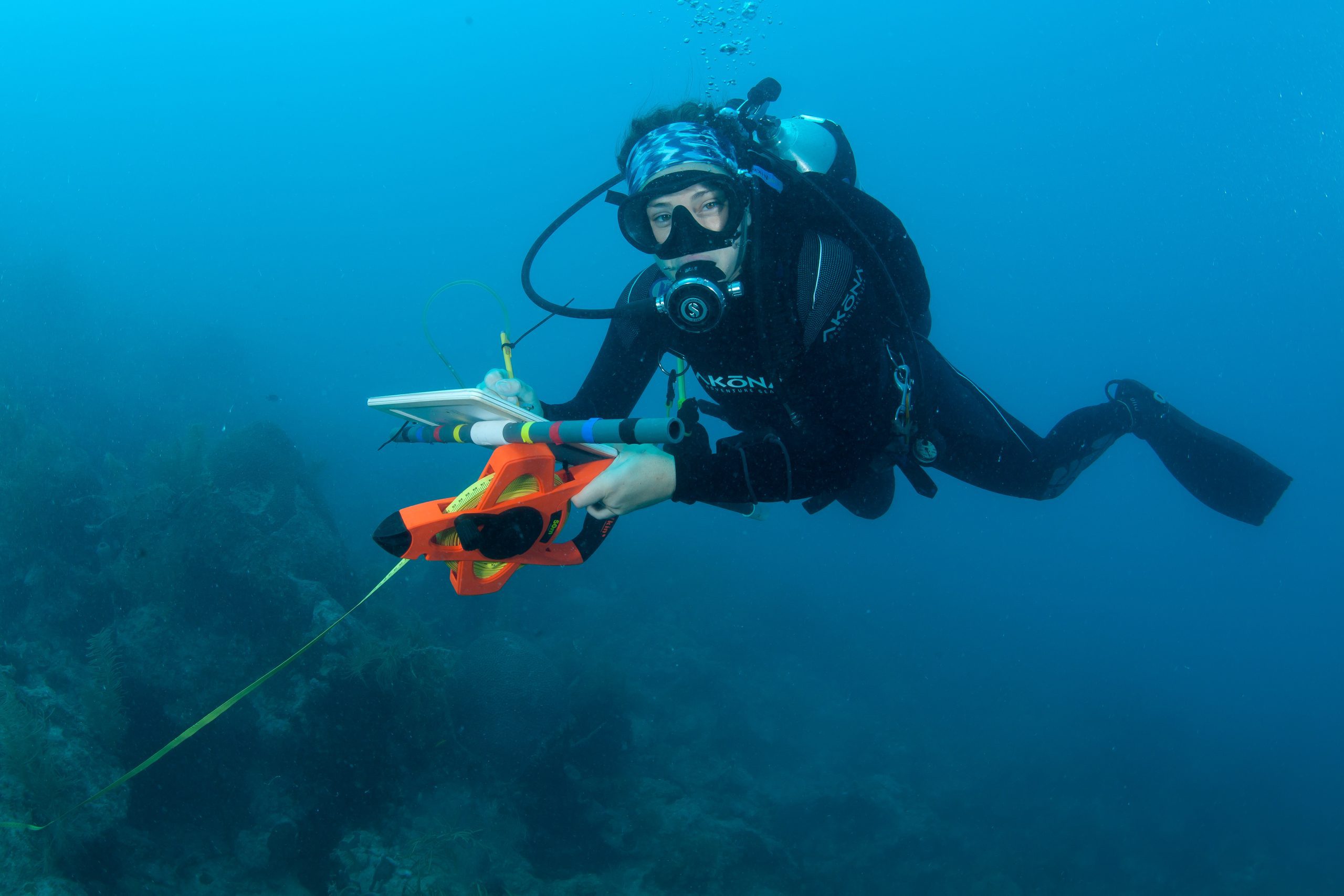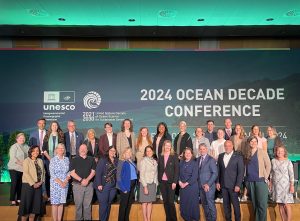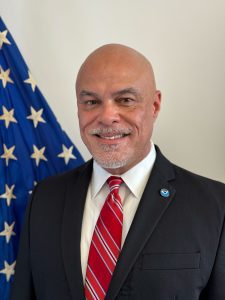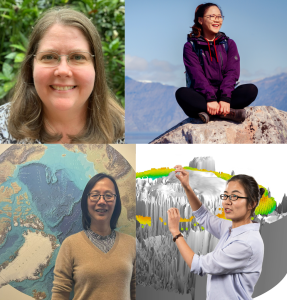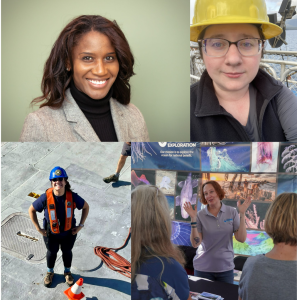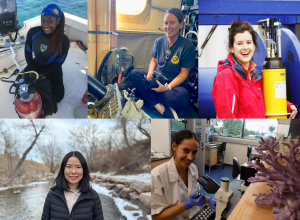Nicole Besemer is a marine biologist at NOAA’s Atlantic Oceanographic and Meteorological Laboratory (AOML)’s Coral Program. The Coral Program at AOML focuses on investigating the impacts of climate change and ocean acidification on coral reefs. Nicole’s role is to manage the program’s climate monitoring efforts as part of the National Coral Reef Monitoring Program (NCRMP).
NCRMP’s objective is to provide consistent, sustained, and long‐term measurement of key indicators that gauge the status and trends of coral reef health. To do this, Nicole and fellow scientists travel to U.S. coral reefs throughout the Atlantic and Caribbean to perform surveys and maintain instruments that provide the data needed to monitor climate impacts.
What drew you to your current career or field?
My dad would take me out on his boat before I could walk, so I grew up fishing with him and spending time on the water. We lived in many different places, but one constant was always finding a lake or ocean to take the boat out. This is where I really grew my appreciation for everything the environment had to offer. In high school, I was so fortunate to be able to participate in multiple field trips to explore national parks. This included a two-week trip to Alaska as well as visits to the Grand Canyon, Zion National Park, Bryce Canyon, and many others. It was from these experiences and inspiration from my science teacher that I was able to realize a career studying the environment, and more specifically marine science, was possible. My two positions before joining NOAA were working for the National Park Service!

What projects or research are you working on now?
At the moment, we are in the process of planning our 2022 field season. This will include trips to St. Croix in the US Virgin Islands, Flower Garden Banks National Marine Sanctuary, and work throughout the Florida Keys National Marine Sanctuary. I’m also excited to participate in a collaboration with our Pacific counterparts to travel on one of their missions to the Northern Marianas Islands. During this mission, we will visit the island of Maug, which contains study sites that provide access to volcanic vents that exhibit high CO2 levels. These areas can offer some insight on what future climate impacts might look like, as CO2 levels rise across the world’s atmosphere and ocean. This effort will follow up on previously published research by the Coral Program PI, Dr. Ian Enochs so we are excited to get the opportunity to visit these sites again and see if/how things have changed.
What do you enjoy most about your work?
There are two aspects to this question for me. What I love most about my job is it’s so versatile. From planning trips, to being in the field, analyzing the data, reporting the data, participating in outreach activities, and mentorship, I am never doing one thing for too long. What I enjoy the most about our program and our research is that we are contributing to science that can hopefully make our world and environment a better place one day, and I’m thankful for the opportunity to do so.


Who do you look to as a role model and why?
I look to my cousin, Dawn Shirreffs, as a role model. When I first graduated from college, she encouraged me to move to South Florida with her for the opportunities located here. She provided me with a home, career advice, and so many of the connections that have led me to be a successful coral researcher today and I am forever thankful. As the Director for Florida’s Environmental Defense Fund, she works every day to implement meaningful change within our government to tackle issues like coastal resilience, increased access to electric vehicles, and clean renewable energy policy. I hope to be able to make as much of an impact on our climate issues as her.
What does Women’s History Month mean to you?
Women’s History Month to me is a way to honor the women who are comfortable with being uncomfortable and use that discomfort to inspire change in their community. We each have a story to tell, and you never know what impact that story can have. To know that there were women like me, who were able to make a difference and make life for the next generation better than their own, is so inspiring.
